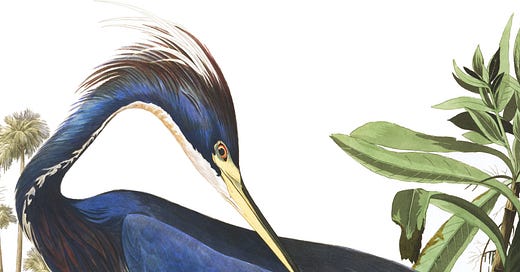writing is the best way to make sense of the world
Or, at the very least, write to figure out how you feel about the world not making sense.

I’ve always been a reactionary writer. (I’ve probably always been a reactionary person, but that’s a completely different subject.) I tend to react to things I read, things I experience, things that inspire me, things that make me angry. And then I write about them.
Noah Smith says,
“I write because I need to organize my own thoughts. I need to make sense of the world, and a big part of the way to do that is by writing. And if you’re that kind of person, you should probably at least have a blog.”
And Joan Didion says,
“I write entirely to find out what I’m thinking, what I’m looking at, what I see and what it means.”
When I’m reacting to the things going on in my life, the things I’m reading, or the things I’m doing, those reactions end up in one of three places:
My journal. I journal almost daily. This is where you’ll find my greatest joys, my biggest fears, and everything in between documenting my life.
This blog. See Noah Smith’s quote above.
The novels I write. Some of (what I think is) my best writing (and probably my darkest) has come from my life experiences. When you write thrillers or fast-paced suspense, you almost always have to create complex characters with myriad problems. Danger is in the Shadows, the book I’m currently writing, is my reaction to many dark things happening in my life this year. Creating characters around some of the subjects I’ve had to deal with has helped me process some difficult-to-understand issues.
Being a reactionary writer is about more than finding ideas from your everyday life for your writing, it’s about the energy you bring to your writing when you’re reacting to positive and negative life events.
Bill O’Hanlon, from his book Becoming a Published Therapist, says,
“In my view, there are four main energies you can tap into when you write your book. The main writing energy you discover may be just one or you may find that you have a combination of more than one of these energies that fuels your writing endeavors. The four energies are Blissed, Blessed, Pissed, and Dissed. The first two represent the positive energies; the last two, the ‘negative.’”
As a reactionary writer, I tend to camp out in the areas of Blissed, Pissed, or Dissed when I’m writing, but in the area of blessed when I’m not. At first I thought this was weird, but then it totally made sense. I write thrillers, so of course, I tend to use more of the negative to bring tension to the books, while borrowing a bit of bliss to soften the darkest parts.
And I like Austin Kleon’s note:
“O’Hanlon’s point is that ideas aren’t enough, you need energy to see you through a creative project, and if you can identify that energy and where it comes from, it can help your work.”
If you enjoyed this, do me a favor and hit the ❤️ button. And don’t forget to subscribe.
Thanks for reading. This newsletter is a reader-supported publication. The best way to support it is to buy my books or become a paid subscriber (but you can also subscribe for free).
I want to send out a special “Thank you” to recent paid subscribers. Because of generous people like you, I can continue to publish articles like this.




I loved how you closed your article: ideas are not enough, you need energy for writing and that energy has to come from somewhere.
I started my Substack because I realised that my energy comes from sharing my work and getting feedback. And after reading your article I realised that all my writing ideas are reactionary: I read something and the ideas start to flow. And I also need to write things down to make sense of them. It's like I'm digesting life on paper.